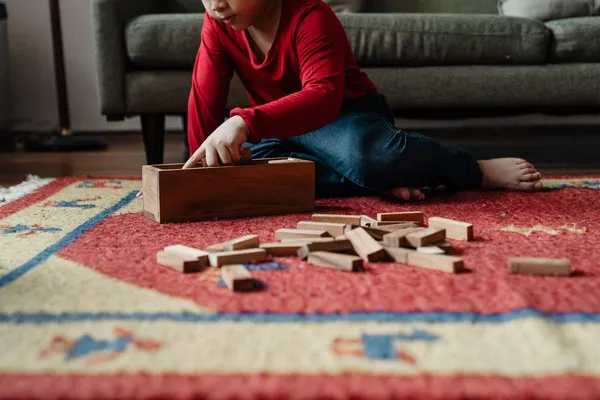As children grow and develop, they go through various stages that can impact their behavior and attitudes. One common question among parents is, “What age are kids most rebellious?” In this article, we will explore the different stages of child development and when kids are most likely to exhibit rebellious behavior.
Toddlerhood
Toddlers are known for their temper tantrums and strong-willed personalities, but is this considered rebellious behavior? While tantrums and defiance are normal parts of toddlerhood, they are not typically classified as rebellious behavior. Toddlers are still learning about boundaries and social norms, and their behavior is largely driven by their need for independence and exploration.
Here are some tips for handling toddler rebellion:
- Be consistent: It’s important to establish clear rules and boundaries for your child, and to be consistent in enforcing them. This can help prevent confusion and frustration that can lead to rebellion.
- Offer choices: Giving your toddler choices can help them feel more in control of their environment, which may reduce the need for rebellion. For example, you could offer two options for what they want to wear or what they want for snack.
- Provide positive reinforcement: Praise your child when they follow the rules and behave well. Positive reinforcement can be a powerful motivator for young children.
- Redirect attention: If your child is engaging in a behavior you don’t want to encourage, such as throwing a tantrum, try redirecting their attention to something else. For example, you could suggest playing with a favorite toy or reading a book together.
- Stay calm: It’s important to stay calm when dealing with toddler rebellion. Reacting with anger or frustration can escalate the situation and make it harder to manage.
However, it is important for parents to set clear and consistent boundaries during this stage to help establish expectations for behavior as the child grows.
Middle Childhood
Middle childhood, typically between the ages of 6 and 11, is a time of significant growth and development. Children in this age group are often seeking autonomy and independence, which can lead to rebellious behavior.
- Peer Pressure
Children in middle childhood are more susceptible to peer pressure, as they begin to place greater importance on their relationships with peers. This can lead to rebellious behavior as they try to fit in with their peers or assert their independence.
- Testing Boundaries
Children in middle childhood may also test boundaries and rules as they begin to develop a better understanding of cause-and-effect relationships. This can lead to rebellious behavior if they feel that rules are too restrictive or if they feel that they can get away with breaking them.
- Developing Identity
As children develop a sense of identity during middle childhood, they may begin to push back against authority figures such as parents or teachers. This can lead to rebellious behavior as they try to assert their independence and individuality.
Here are some ways to handle middle childhood rebellion:
- Encourage independence: Allow your child to take on age-appropriate responsibilities such as doing chores or managing their own schedule. This helps them feel trusted and respected.
- Practice active listening: Take the time to listen to your child’s thoughts and feelings without interrupting or dismissing them. This can help build trust and strengthen your relationship.
- Set boundaries together: Work with your child to establish rules and consequences that are fair and reasonable. When children have a say in the process, they are more likely to follow through.
Adolescence
Adolescence is perhaps the most well-known stage for rebellious behavior. This stage is typically marked by a desire for independence, experimentation, and risk-taking.
- Peer Pressure
Like middle childhood, peer pressure can play a significant role in adolescent rebellious behavior. Adolescents may engage in risky behavior to impress their peers or to fit in with a certain social group.
- Experimentation
Adolescents are also more likely to experiment with drugs, alcohol, and sex during this stage, which can be seen as rebellious behavior.
- Challenging Authority
Adolescents may also challenge authority figures as they seek to establish their own identities and independence. This can lead to rebellious behavior if they feel that rules or expectations are too restrictive.
Here are some ways to handle adolescent rebellion:
- Keep communication open: Adolescents need space to explore their own identities, but they also need guidance and support from parents. Keep lines of communication open and encourage your teen to talk to you about their experiences and concerns.
- Set clear boundaries: While teenagers crave independence, they also need structure and consistency. Establish clear rules and consequences for breaking those rules, and be consistent in enforcing them.
- Choose your battles: Not every disagreement is worth fighting over. Prioritize the issues that are most important to you and your family, and be willing to compromise on less important matters.
Early Adulthood
While early adulthood is not typically associated with rebellious behavior, it can still be a time of significant change and growth.
- Making Life Choices
Early adulthood is a time when individuals are making significant life choices, such as choosing a career or starting a family. These decisions can be seen as rebellious if they go against societal norms or family expectations.
- Challenging Social Norms
Early adulthood is also a time when individuals may begin to challenge social norms and expectations. This can include questioning traditional gender roles, challenging political or religious beliefs, or advocating for social justice causes.
- Seeking Independence
Finally, early adulthood is a time when individuals may seek independence from their families and establish their own identities. This can lead to rebellious behavior if they feel that their families or social circles are holding them back.
Here are some tips for handling rebellion during early adulthood:
- Understand your motivations: Take time to reflect on why you feel the need to rebel. Are you rebelling against something specific, such as strict parental or societal expectations? Or are you rebelling simply for the sake of rebelling? Understanding your motivations can help you make more informed decisions about how to handle your rebellion.
- Seek support: Surround yourself with supportive people who understand what you’re going through. This could be friends, family members, or a therapist who can provide guidance and support as you navigate this stage of life.
- Communicate effectively: If your rebellion is causing conflict with others, it’s important to communicate your feelings in a respectful and effective way. Try to listen to others’ perspectives as well, and work together to find common ground.
- Look for positive outlets: Instead of engaging in destructive behaviors that could harm yourself or others, look for positive ways to express your rebellion. This could include pursuing a new hobby, volunteering for a cause you believe in, or exploring creative outlets like writing or music.
- Take responsibility: While it’s important to assert your independence, it’s also important to take responsibility for your actions. Recognize that your choices have consequences, and strive to make choices that align with your values and goals.
In conclusion, understanding the stages of child development can help parents and caregivers anticipate when their children may exhibit rebellious behavior. While rebellious behavior is a normal part of child development, it is important to establish clear boundaries and expectations to ensure that children are safe and healthy as they grow and explore their world. It is also important for parents and caregivers to communicate openly with their children and to provide a safe and supportive environment where children feel comfortable expressing themselves.
Related Topics:





























